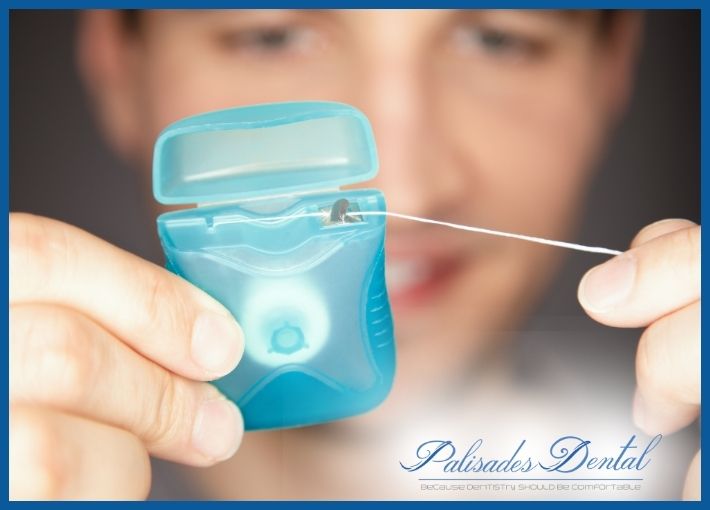Ever flinch when you bite into an ice cream cone? Or wince when a gust of cold air hits your teeth? Teeth sensitivity can be a real zinger, causing sharp pain that shoots into the nerve endings. Don’t worry, though! There are ways to chill those sensitive nerves, from fluoride and special toothpaste to dental bonding that strengthens your smile. Questions? We are always here!
Teeth Sensitivity
Teeth sensitivity can occur when you consume hot, cold, sweet or sour foods and drinks, or even by breathing cold air. Pain can be sharp, sudden and shoot deep into tooth nerve endings. Treatments include fluoride, desensitizing toothpaste and dental bonding.
Overview
What is teeth sensitivity?
Teeth sensitivity usually occurs when the underlying layer of your teeth — the dentin — becomes exposed. This can happen due to erosion (wear and tear) and gum recession (when your gum tissue pulls away from your teeth, exposing the roots).
Teeth roots, which aren’t covered by hard enamel, contain thousands of tiny tubules leading to your tooth’s center (the pulp). These dentinal tubules (or channels) allow stimuli — for example, hot, cold or sweet food — to reach the nerve in your tooth, which results in the pain you feel.
Dental sensitivity can also be a symptom of other issues, including cavities, gum disease or a cracked tooth.
Possible Causes
What causes sudden tooth sensitivity?
Many factors can lead to the development of sensitive teeth, including:
- Brushing too hard: Over time, brushing too hard or using a hard-bristled toothbrush can wear down enamel and cause the dentin to be exposed. It can also cause gum recession (when your gum tissue pulls away from your teeth).
- Gum recession: Some people are genetically prone to thin gum tissue. Other people develop gum recession as a result of periodontal disease. With gum recession, your gum tissue pulls away from your teeth, exposing the roots.
- Gum disease: Inflamed and sore gum tissue may cause sensitivity because of the loss of supporting ligaments, which exposes the root surface that leads directly to the nerve of the tooth.
- Cracked teeth: Chipped or broken teeth may fill with bacteria from plaque and enter the pulp, causing inflammation.
- Teeth grinding: Grinding or clenching your teeth may wear down the enamel and expose underlying dentin.
- Teeth whitening products: These products are major contributors to teeth sensitivity. If you want to brighten your smile, talk to a dentist about teeth whitening for sensitive teeth.
- Age: Teeth sensitivity is highest between the ages of 25 and 30.
- Plaque buildup: The presence of plaque on the root surfaces can cause sensitivity.
- Mouthwash use: Some over-the-counter mouthwashes contain acids that can worsen teeth sensitivity if you have exposed dentin (the middle layer of the tooth). The acids further damage the dentin layer of the tooth. If you have dentin sensitivity, ask your dentist about the use of a neutral fluoride solution.
- Acidic foods: Regular consumption of foods with a high acid content, such as citrus fruits, tomatoes, pickles and tea, can cause enamel erosion.
- Recent dental procedures: People can get sensitive teeth after fillings, teeth cleanings and dental restoration placement. Sensitivity caused by dental procedures is temporary and usually disappears in four to six weeks.
Does a sensitive tooth mean infection?
Not always. Sometimes, teeth sensitivity indicates tooth erosion (wear and tear) or gum recession. But it can also mean that you have a cracked or infected tooth. Infection-related tooth pain may be dull and achy or sharp and throbbing.
If you have severe teeth sensitivity that doesn’t go away, call a dentist right away for further instructions.
Care and Treatment
Can sensitive tooth pain go away?
Yes. In some cases, teeth sensitivity goes away on its own — especially if it’s due to a recent dental procedure, such as a filling or root canal. If you have teeth sensitivity that lingers and doesn’t go away, talk to a dentist. You might have worn enamel or exposed teeth roots. In these cases, you might need treatment to address the issue.
How do you stop sensitive teeth pain?
Treatment depends on the cause. If you develop lingering teeth sensitivity or discomfort, be sure to schedule an appointment with your dentist. They’ll need to rule out any serious conditions so they can recommend appropriate treatment.
To reduce your risk of teeth sensitivity caused by normal wear and tear:
- Use desensitizing toothpaste: There are several brands of toothpaste for sensitive teeth. With regular use, you should notice a decrease in sensitivity. You may need to try several different brands to find the product that works best for you. Another tip: Spread a thin layer of the toothpaste on the exposed tooth roots with your finger or a Q-tip before you go to bed. Be sure to use fluoridated toothpaste.
- Maintain good oral hygiene: Continue to follow proper brushing and flossing techniques to thoroughly clean all parts of your teeth and mouth.
- Use a soft-bristled toothbrush: This will result in less toothbrush abrasion to the tooth surface and less irritation to your gums.
- Watch what you eat: Frequent consumption of highly acid foods can gradually dissolve tooth enamel and lead to dentin exposure. They may also aggravate the sensitivity and start the pain reaction.
- Use fluoridated dental products: Daily use of a fluoridated mouth rinse can decrease sensitivity. Ask your dentist about available products for home use.
- Avoid teeth grinding: If you grind or clench your teeth, use a mouth guard at night.
- See your dentist regularly: Get routine professional exams, cleanings and fluoride treatments.
If you still have discomfort, talk to your dentist. There are some dental procedures that may help reduce sensitivity, including the use of:
- Dental bonding to cover exposed root surfaces.
- Fluoride varnishes applied to the exposed root surface.
- Dentin sealers applied to the exposed root surface.
When to Call the Doctor
When should I see my dentist for teeth sensitivity?
Schedule an appointment with your dentist if you have teeth sensitive to:
- Cold.
- Heat.
- Sweets.
What questions should I ask my dentist?
- Why are my teeth sensitive?
- Do I need treatments to address my sensitive teeth?
- Are there treatments that can prevent teeth sensitivity in the future?
- What over-the-counter products do you recommend?
- How often should I have teeth cleanings?
A note from Cleveland Clinic
Several different factors can cause teeth sensitivity, including worn enamel, exposed roots, cavities, cracks and even recent dental procedures. Whether you need treatment depends on the cause. You can address mildly sensitive teeth with desensitizing toothpaste and good oral hygiene. Severe teeth sensitivity caused by gum recession, cavities or cracked teeth may require treatment. Your dentist can help determine what’s causing your sensitive teeth and recommend treatment to address the issue.
Don’t let teeth sensitivity steal your smile. We offer gentle care to ensure your sensitivity treatment fits seamlessly into your life. Schedule your dentist appointment today at 801-756-1009. For more tips on general dentistry, follow us on Instagram.
Reference: [https://my.clevelandclinic.org/health/symptoms/10954-teeth-sensitivity]









